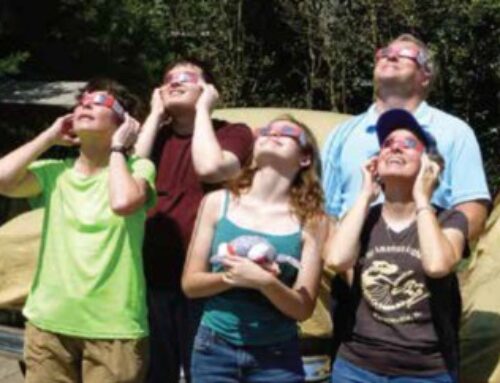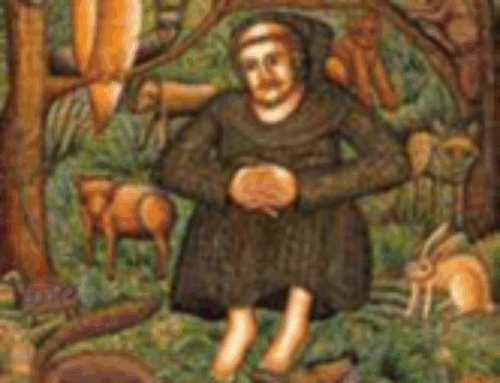(This article originally appeared in the TAU-USA Fall 2023 Issue #110)
National Ecumenical/Interfaith Committee 
by Ron Lacey, OFS
One of the greatest joys at the recent National Chapter, for me, was meeting in person two of my fellow Ecumenical/Interfaith Committee members, Donna Hollis, and Carolyn Townes, as well as our friend Fr. Masud ibn Syedullah, who attended the Chapter as an observer on behalf of the Third Order Society of St Francis (TSSF). I was especially grateful that Fr. Masud shared with me some of the history of the founding of the Joint Committee on Franciscan Unity – and the role he played in the founding. I also enjoyed learning about his ministry in Hyde Park, NY, and his parish’s intimate connection with the Roosevelts.

from right to left, Ron Lacey, OFS; Donna Hollis, OFS; Fr. Masud Syedullah, TSSF
I couldn’t help thinking how our meeting – an Anglican priest at the Chapter of a Catholic order – would have been, for far too long, unthinkable. Until people did think of it! And then these people acted on it: Roman Catholic Secular Franciscans reached out to the Anglican TSSF and the Order of Ecumenical Franciscans and asked for dialogue. Meetings were held, and five principles of Franciscan unity, across our denominations, were discovered: baptism, charism, call, Christo-centrism, and the prophetic voice. The Joint Committee on Franciscan Unity was founded, and in time the Order of Lutheran Franciscans joined. “How blessed it is when brothers and sisters dwell together in unity,” (Ps 133:1).
It may not seem very big, noticeably big, but in fact, as Pope Francis reminds us in his encyclical Fratelli Tutti: “If we want to encounter and help one another, we have to dialogue. Persistent and courageous
dialogue does not make headlines, but quietly helps the world to live much better than we imagine,”
(198). We must all create processes – indeed, a culture – of encounter. In such a culture, “we, as a people, should be passionate about meeting others, seeking points of contact, building bridges, planning a project that includes everyone,” (216). Processes of encounter will “build a people that can accept differences,” (217). It’s hard to imagine anything the world needs more right now than building bridges and accepting differences! This is especially incumbent upon people of faith. Christians “need to find occasions to speak with one another and to act together for the common good and the promotion of the poor,” (282).
If you have not already done so, please spend some time with Fratelli Tutti. Maybe read it with your Fraternity, or start a reading group in your parish, or just read it by yourself. It beautifully articulates the vision of a culture of encounter, with helpful suggestions to create processes of encounter.
Fratelli Tutti may also be useful in addressing the important subject of anti-racism, something that was discussed at length at our National Chapter. Not being racist is not the same thing as being anti-racist. Anti-racism is an active and definitive stand against racism, including systemic and institutional racism, which can be all too easy for majority-culture people like me to overlook. Anti-racism is the intentional work for inclusion, respect, and a more just world. We need reminders.
One may wonder what anti-racism has to do with ecumenism. For starters, they both grow out of loving and honest encounters, and they are both aimed at creating and fostering further encounter and dialogue. Pope Francis doesn’t go out on a limb when he says: “Jesus never promoted violence or intolerance,” (238). But he reminds us that society – of which our Order is a little piece, our Church a bigger piece – is a family, and “the joys and sorrows of each of its members are felt by all. That is what it means to be a family!” (230). “There is no end to the building of a country’s social peace; rather, it is an open-ended endeavor, a never-ending task that demands the commitment of everyone and challenges us to work tirelessly to build the unity of the nation,” (232).




Leave A Comment